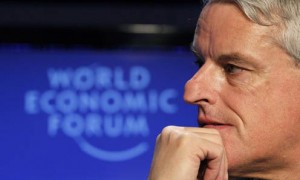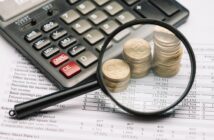Dyer to lead session on retrofit finance and investment at World Economic Forum Annual Meeting
 As world business and political leaders today convene at the World Economic Forum Annual Meeting 2011 in Davos, Switzerland, Jones Lang LaSalle Chief Executive Officer Colin Dyer is speaking on four commercial real estate trends that are emerging as dominant forces supporting the global economic recovery in 2011.
As world business and political leaders today convene at the World Economic Forum Annual Meeting 2011 in Davos, Switzerland, Jones Lang LaSalle Chief Executive Officer Colin Dyer is speaking on four commercial real estate trends that are emerging as dominant forces supporting the global economic recovery in 2011.
“After avoiding the most catastrophic outcomes in the wake of the global economic and financial crisis, commercial real estate markets in all regions of the world are rebounding broadly, albeit at an uneven pace,” says Dyer. “Although the world still must work through significant financial, economic and political risks in 2011, it’s clear we’re getting back on track with the comeback of a number of positive, long-term commercial real estate trends.”
As support for his views on how commercial real estate impacts the global economic recovery, Dyer offers the following:
- Property market recovery encourages globalization of capital flows and liquidity improvement in the investment markets: “With a fundamental performance recovery well underway in most dominant global real estate markets, we expect global direct investment into commercial real estate to surge up by 20 to 25 percent to $380 billion in 2011, which follows the 50 percent growth we experienced in 2010 over 2009 levels. Fourth quarter 2010 global investment volumes already topped the $100 billion mark for the first time since the onset of the global financial crisis in 2007, demonstrating momentum for increased investment trades in our sector. More property trades signal improved investor confidence that will encourage investors to assume greater risk to achieve their intended returns. At the same time, the lending environment is being strengthened as banks successfully and quietly refinance their loans. The return of the commercial property investment market bodes well for the global economic recovery,” says Dyer.
- Commercial property recaptures its place as a preferred institutional investment category: For many institutional investors, real estate is once again being valued as an asset class with better-than-average income potential. “Along with the aging population in many parts of the world, governments and companies will need to generate more cash to pay beneficiaries and, in turn, are very likely to increasingly tap commercial real estate as an asset class due to its income-producing characteristics,” Dyer observes.
- Capital sources demand increased transparency: “Amid the recent global financial and market turmoil, activity in most markets focused on surviving rather than advancing,” Dyer notes. “Now, investors are demanding the ability to see clear exit strategies before placing their capital into commercial real estate. One of the key reforms likely to emerge from the credit crisis is a renewed focus on demonstrating improved transparency and regulatory measures to stem a repeat incident. Many cities will work to become more transparent in recognition that it can enhance their competitive strength in attracting both business and capital.”
- Sustainability and energy management climb the corporate agenda: “As evidenced by the surprisingly positive outcome of last month’s Climate Change summit in Cancun, Mexico, many countries and companies around the world recently have demonstrated their renewed commitment toward addressing the role they play in the emission of greenhouse gases that accelerate climate change,” Dyer points out. “This growing obligation will be addressed in the World Economic Forum’s session on ‘Banking on Retrofit Finance,’ during which we will explore how organizations are addressing the challenges and opportunities in scaling up the building retrofit market.”
Commercial real estate impact on economic recovery
The effects commercial real estate has had on the general global economic recovery are now becoming clear. While the current trends in the commercial real estate sector are encouraging growth signs, many risks still remain on the road to global economic recovery in 2011. Dyer cites concern for the ongoing and serious challenges represented by the massive trade imbalances in place today and the government deficits around the world.
“Consider, for example, how Germany and China show huge surpluses while the United States is running massive deficits. These trade imbalances continue to cause pressure across the global economy. While real concerns linger, the performance of commercial real estate is looking better than last year and we expect the long-term trends we noted to become even more pronounced as the year unfolds,” concluded Dyer.
Dyer is sharing his full viewpoints at the World Economic Forum in direct meetings with many Jones Lang LaSalle clients, as well as during his public appearances. Dyer is chair of the “Banking on Retrofit Finance” session in Davos on Friday, January 28 from 15:15 – 16:45 at the Hotel Victoria, Victoria. He served as chair of the Forum’s real estate industry committee in 2010.






1 Comment
Hi there, I’m following your site from a long time now and read all the posts back to back when I saw it first time…very nice read!! Thank you!Cheers